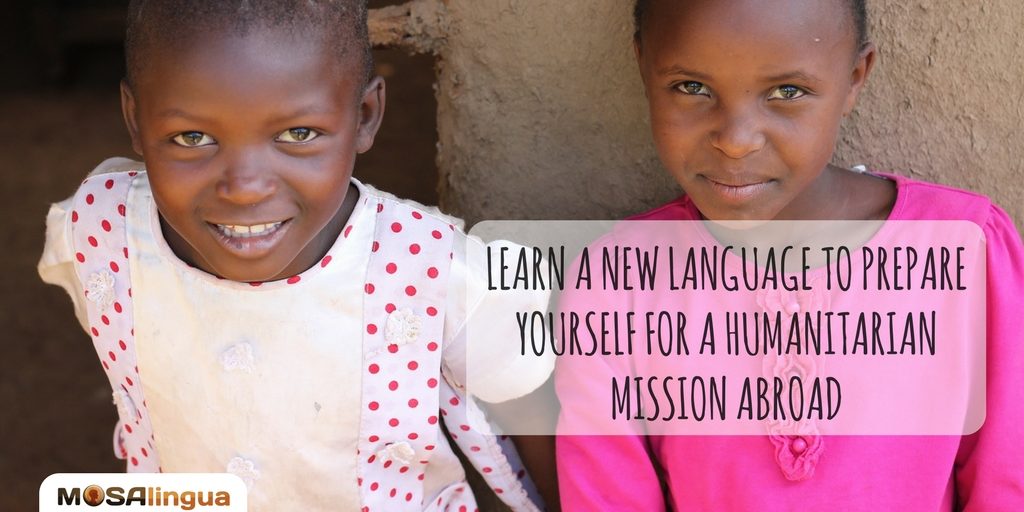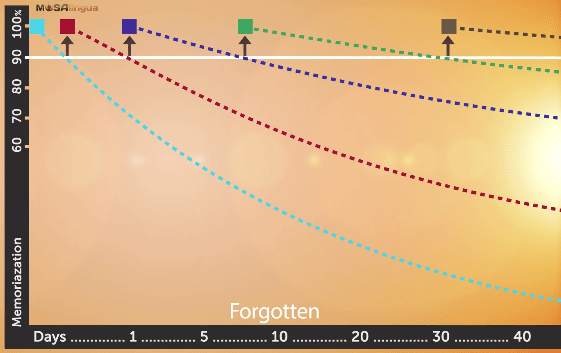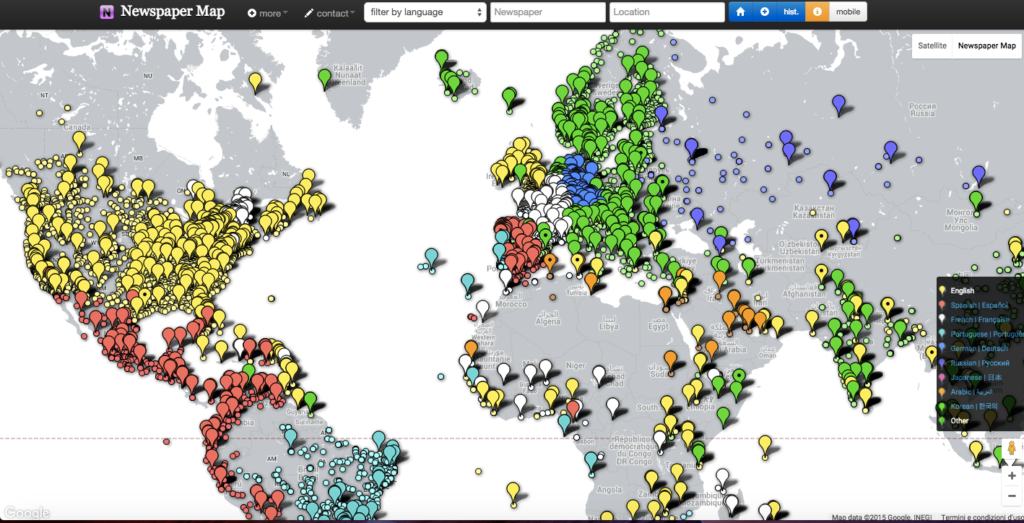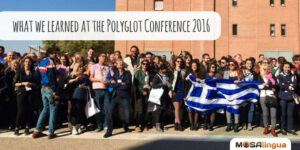Helping others, working while being immersed in another culture for the purpose of learning, personal development, exchanging, discovering, sharing your knowledge…
Many are the reasons that motivate young people to seek humanitarian jobs and volunteer with humanitarian missions abroad. And, honestly, there are probably as many reasons for going than there are benefits for simply leaving. Humanitarian jobs and volunteer missions open the horizons of those that partake in them. And, as a little bonus, it adds value to their C.V.

Learn a New Language to Prepare Yourself For a Humanitarian Mission Abroad
Additionally, the benefits of humanitarian missions start before even leaving. You learn to get organized, plan for your departure, free yourself, and sometimes, you learn a new language in order to be comfortable once you arrive there.
Here are a few tips on how to learn a new language before leaving for a humanitarian mission.
Any project needs organizing
Any trip needs preparation beforehand. Properly organizing your trip for a humanitarian mission abroad requires you to think about and to initiate the process for obtaining a VISA, possibly registering at an embassy, getting vaccinated, the financial aspect of the trip (because most humanitarian missions aren’t paid), etc. Many associations offer to assist you in these procedures.
The need to learn a new language to go on a humanitarian mission
Another way to prepare for your humanitarian mission is to learn the language of the host country.
Why do you say? To easily integrate into a team, to work with another culture with ease, to shorten your learning curve, for the cultural exchange and to enrich your life experiences… Learning the language spoken in the host country, before even leaving is your first step.
What Methods Should I Use to Learn a Language Before Going on a Humanitarian Mission?
Many young people envision going on a humanitarian mission abroad to learn a language or to perfect their French, Spanish, Portuguese or any other language. It is true that immersing yourself in a foreign country can help to learn a new language. However, nothing is stopping you from starting to learn before you leave. We’re not talking about arriving there with complete fluency of the language but to know, at the very least, basic vocabulary, forms of politeness, as well as some key words which will allow you to quickly progress once you arrive really is an advantage.
1. Concentrate on The Most Useful Key Words And Expressions
The first method thus consists of concentrating on key words and expressions which will help you the most when you first arrive. Aside from basic forms of politeness, you can start by learning some vocabulary and expressions which are bound to be used when working in your future mission field. Actually, the words the MosaLingua apps offer are specifically selected for daily use.
At MosaLingua, our method is similar to the Pareto principle, which states that 80% of the effects are due to 20% of the causes. What does that have to do with languages? By learning 20% of a language, you’ll be able to get by 80% of the time.
How can you start? Good news! We’ve prepared some travel language phrasebooks with the 1,000 most useful words to get by. You can download them for free by filling out the form below:
2. Review, Review, Review!
After having learned some useful words and phrases, you’ll need to regularly review them (every day if possible). This is key to quickly learning vocabulary and it’s the very principle of the “spaced repetition system”.
When we talk about organization, we also talk about organization in learning the language. It has been shown that to absorb new information, such as a new word or expression and keep it for the long-run, you need to space out the timing of your revisions. This system is one of our core concepts that we use in the MosaLingua apps, which tells you when is the ideal moment to properly review vocabulary and expressions. A plan is calculated according to the curve of forgetting.

Please note: to fully assimilate with new vocabulary, nothing is stopping you from starting to learn before leaving and to review when you are at your mission field!
3. Read Local News Articles
Here’s an idea to better understand the country you’ve chosen as your new destination and practice its language at the same time: start reading local newspapers.
You’ll then be able to get a feeling of the local culture and ameliorate your capacity of reading in the country’s language. We’ve found a great website which allows you to find and read newspapers from around the world: it’s called Newspaper Map. We highly recommend it. It’s quite useful! Select a country on the map to find an array of daily newspapers to read from.
 4. Listen to Radio Stations From Your Target Country
4. Listen to Radio Stations From Your Target Country
For oral comprehension, the diversity of accents can play an important role. Even if you speak perfect European or Canadian French, speaking with a French-speaking African may be very hard at first. Likewise, if you go to Latin America, be prepared to hear a different kind of Spanish than the one spoken in Spain.
The solution to all these problems is a small tip to be put into practice before leaving in order to get used to the accent of the country you chose. For 10 minutes a day, listen to a local radio station.
Bit by bit, you’ll then be able to get used to the way words are pronounced and the way locals speak, all while getting in first contact with their culture. For this, you can use this excellent free app Tune In, which will allow you to search for different radios stations by country and then choose the one(s) you like most. And an added advantage is that you’ll also be able to listen to local music as well 😎
5. Talk With Native Speakers on Language Exchange Websites
How can going on a humanitarian mission help you perfect or improve your language skills? Simply because you have daily contact with people who speak that language. Let me say it again. There’s nothing like full immersion. This last method thus consists of fully immersing yourself in the language before leaving… by finding a language exchange partner.
Indeed, there are many language exchange resources which help you find people to practice your language skills (in English for your partner’s level, and in their language to improve your language skills). It only takes signing-up to one of these sites to connect with people around the world and why not connect with a local in your future host country.
Ready to go on that mission? Well now you’re well prepared… so go on and do it!
Related posts:
Start learning a new language today

Good news: we can help!
More good news: you can get started for free! Start your free trial now and for the next 15 days, take advantage of the most effective language learning method on the market!
Vocabulary flashcards, videos with subtitles, audiobooks, articles adapted to your level – with MosaLingua Premium (Web & Mobile), you’ll have access to all this and more. Get started right now. It’s free—and risk-free—to try!


 4. Listen to Radio Stations From Your Target Country
4. Listen to Radio Stations From Your Target Country



Great post! These are very helpful tips for humanitarians. Keep up the good work and I wish you all the best.-Chris Thompson
Hi Chris,
I am glad you liked the post! Thanks for your comment.
Take care!